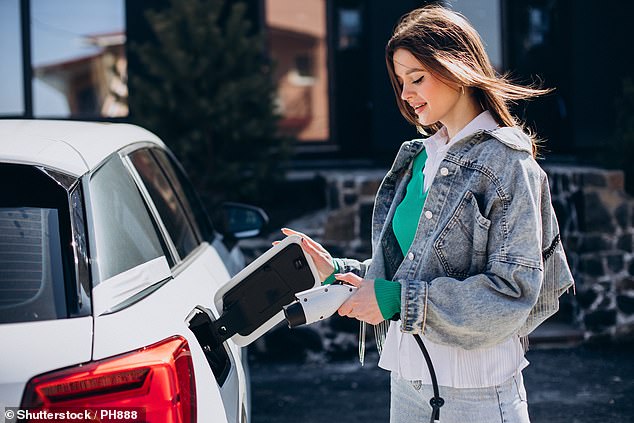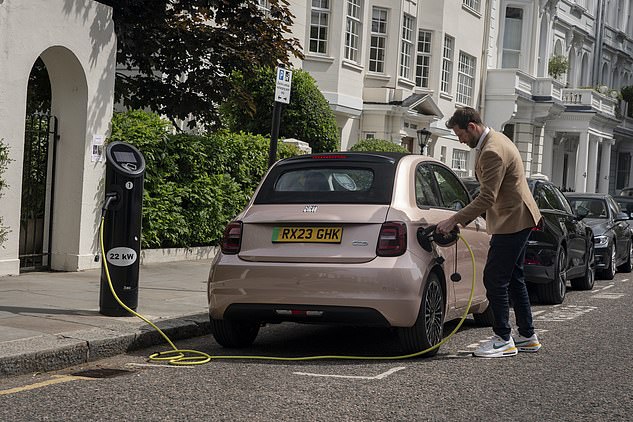The government’s EV strategy must accelerate quickly to reach net zero, the Lords committee has warned
The government must seriously accelerate the transition to electric vehicles (EVs) if Britain is to meet net zero targets on time, a House of Lords inquiry has found.
The Committee on the Environment and Climate Change EV strategy: fast charging report The report published today warns that a ‘combination of higher purchase costs, insufficient charging infrastructure and mixed messaging’ threatens to slow the adoption of electric cars in Britain.
If EV targets are not met, CO2 emissions from passenger vehicles will not fall to the extent needed to tackle climate change and benefit from better air quality, the report concluded.
The report comes a day after industry figures confirmed the millionth electric car had been purchased in Britain, although registration statistics for January showed consumer interest in electric cars continues to decline.
The UK government must act quickly to accelerate the transition to electric vehicles to meet net zero targets, a House of Lords report has found.
Ministers have been told to tackle the difference in upfront costs between electric cars and petrol and diesel cars, and to review subsidies to encourage the purchase of new electric cars.
Promoting the sale of second-hand electric vehicles, which offer young people a more affordable way to own an electric car, was also top of the agenda.
The research ‘identified the key obstacles and barriers to a successful and just transition to the government’s EV target for passenger cars’.
With a clear focus on the future, the committee heard from a wide range of witnesses: young people through the Youth Engagement Program to major manufacturers, charging point operators, and local authorities and ministers.
Baroness Parminter, chair of the inquiry, concluded: ‘The evidence we have received shows that the Government must do more to get people to adopt electric vehicles.
‘If the country fails to implement our recommendations, Britain will fail to reap the significant benefits of better air quality and will fall behind in the slow pace of tackling climate change.’

The committee heard from members of the public, including young people from the Youth Engagement Program, as well as charging point providers, manufacturers and ministers
Targeted recommendations based on the findings follow a three-pronged approach: building buyer confidence; accelerating the rollout of the UK’s charging infrastructure; and supporting industry.
To increase the confidence of motorists, the second-hand EV market needs a boost.
Reducing the VAT rate on public levies from 20 percent to 5 percent (in line with domestic electricity) and reforming road tax are two key areas the committee highlights.
Improved information about the EV transition for buyers also proved essential.
The government fared slightly better when it came to charging infrastructure and industry, with the ZEV mandate for manufacturers and recent investment in the UK manufacturing industry welcome.
Current support for local authorities in the form of the Local Electric Vehicle Infrastructure Fund (LEVI) is seen as a great first step, but the report recommends this be extended for a further three years.
However, outdated regulations are holding back charging infrastructure.
New advice on mandatory workplace charging and the ‘right to charge’ for tenants in multi-occupant buildings is needed to improve public charging networks.
The industry also needs more support to ensure UK manufacturing can keep up with targets and stay ahead of innovation.
Recent private investment in UK battery manufacturing by the government is needed to step in and further improve manufacturing and battery innovation to keep the UK competitive.
Better investment in UK vehicle and battery recycling facilities will also improve end of life.

Lowering the VAT rate from 20% to 5% on public levies would bring it in line with domestic levies – a significant tax benefit for EV drivers
RAC head of policy Simon Williams welcomed the Lords’ “important and far-reaching report” and urged the government to “take seriously the recommendations it makes”.
He added: ‘We have long argued that mass adoption of electric vehicles – which is the government’s aim – depends on falling prices so that they become the natural choice for more people. That is why we are particularly pleased to see that the committee is introducing targeted subsidies for new electric cars, aimed at the more affordable part of the market.
‘We believe that Britain was too hasty in removing the subsidy for plug-in cars as this led to more cheaper models being introduced.
‘Without further financial support, it will take a long time before the majority of motorists can afford the switch to electric.’
Williams continued: ‘We very much look forward to the government’s response to this report and its explanation of what else it will do to ensure that as many drivers as possible can benefit from driving an electric car.’
Ian Plummer, commercial director of Auto Trader, said the Lords Committee had ‘rightly understood the urgency to get the electric transition back on track’.
He said the government’s delayed ban on the sale of new petrol and diesel last September set back the switch to electric vehicles, with more than a third of consumers saying they would never go electric.
“EVs should be accessible to everyone, so we welcome this report and urge the Government to take action,” Mr Plummer said.
Sue Davies, which one? Head of Consumer Protection Policy said: ‘We know consumers want to play their part in tackling climate change, but they face a number of barriers preventing them from buying electric vehicles.
‘Our research has previously shown that the upfront cost of buying an electric vehicle is a major barrier preventing drivers from considering one – and many drivers lack confidence in public charging infrastructure.
‘It is positive that the government has adopted new rules that should ensure improvements in consumers’ experiences with the public charging network.
‘The government and charging point operators must continue to work together to ensure that charging infrastructure in Britain is in order. Charging must be simple and reliable, so that more people can make the switch to an electric car.’

Some links in this article may be affiliate links. If you click on it, we may earn a small commission. That helps us fund This Is Money and keep it free to use. We do not write articles to promote products. We do not allow a commercial relationship to compromise our editorial independence.

